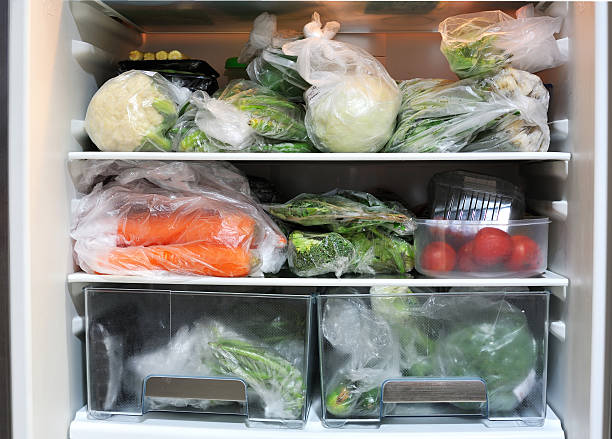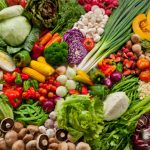The refrigerator has become a household favourite. It’s great at keeping your macaroni salad perfectly cooked and uncooked ground meat from spoiling. However, other foods can lose their texture and flavour much faster than normal. These are five foods that perform better outside of the fridge than inside.
Bread
The refrigerator may be the best thing since sliced bread. It keeps perishables safe in its cold confines. Be careful not to put your bread in there.
“Refrigeration does not slow down the growth of mold but a refrigerated atmosphere is very dry and will therefore hasten to stale of bread,” Randy George (president and co-owner at Vermont’s Red Hen Baking Company) explains in an email. He says that hearth-baked bread should be kept at room temperature in paper bags, perforated bags, or no bag at all. This preserves the crispy crust. He says that although the humidity in your room may vary, it is not as dry as inside a refrigerator. You can freeze bread in a plastic bag if you need it to stay fresher for longer periods.
Potatoes
Although the refrigerator is not the best place to store potatoes, it’s close. Below 45 degrees Fahrenheit (or 7 degrees Celsius), potatoes cannot thrive. Their starches begin to dissolve into sugars at that temperature. This can lead to unpleasant changes in texture and taste.
Instead, prefer a dark, humid environment between forty and fifty degrees Fahrenheit (4.4 to 10 degrees Celsius). If you live in the Northern climate, you can store potatoes in a basement, pantry or root cellar. You can store potatoes in a kitchen cupboard or cellar if you live in a warmer region of the globe. However, it is best to use them within a week. The potatoes will begin to sprout after this time. Wrap the potatoes in a paper bag instead of a heavy plastic bag for storage.
Winter Squash
You don’t need to be fancy about squash storage. If you plan to eat them soon, the countertop is enough. You want them to last longer, so choose a dark, cool place like a drawer, cabinet, or kitchen pantry.
Winter squash will last longer when they don’t touch each other or aren’t on hard surfaces. It’s best to wrap them in paper or cloth. Acorn and butternut squash, for example, can be stored in cool areas for up to a month. Avoid storing squash near fruits and vegetables that produce ethylene. This can cause the squash to rot. These include tomatoes, onions, and ripe bananas.
Tomatoes
To prevent them from spoiling, it is best to store your tomatoes at room temperature. If the tomatoes are placed with their stems down and away from direct sunlight, they will last two to three days. The reason is that tomatoes will soften faster if they are exposed to heat. Some tomato varieties are specially bred to last longer and can be kept on hand for a week.
You can make sure that your tomato lasts a while by storing it in the refrigerator. However, it is important to let it cool down before slicing it and serving it.
Onions
Like potatoes, onions can be stored in a pantry or kitchen cabinet. We are looking for a dark, dry and cool environment instead of the humid, cool environment that potatoes prefer. This is especially true for dry yellow bulb onions. Avoid storing them inside plastic bags as the air can’t get into the containers. You need to ensure that the area has enough ventilation to keep them fresh.



